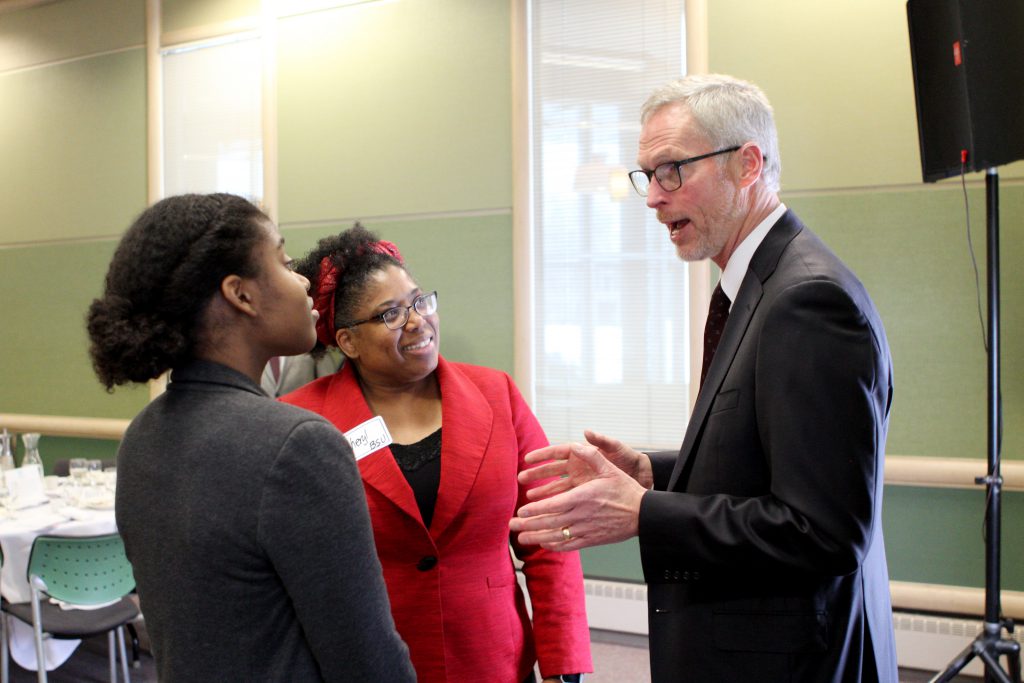Amend Rules to Choose Next UW President
UW Regents should revert to earlier, more collegial guidelines for search process that Republicans scrapped.
Dr. Jim Johnsen, President of the University of Alaska System and sole finalist to succeed retiring Dr. Ray Cross as UW System President, decided to withdraw his name from further consideration. Regents President Drew Petersen declared the date, June 12th, a “dark day.” Not so: this resignation provides the Board of Regents (BOR) with the opportunity to re-design their search process prior to their next attempt. We propose a return to the search design that was in place when the newly appointed Interim President, Tommy Thompson, was Governor.
The design of this failed search has its origin in the efforts of the Walker Administration to ensure Republican control of all UW faculty governance practices. So, when this high-level administrative position became open, the BOR (a Republican-dominated Board) took their cue from the Republican-led Legislature and excluded faculty from having any role in the search process.
As we recently wrote (“Why UWM Matters,” Urban Milwaukee, June,10, 2020), the faculty are the core of the university. They are part of an international network of scholars who conduct and critique original research in their specialty discipline. This peer review process requires logical and technical rigor in the creation of new knowledge. It enables faculty to remain current as the knowledge in their disciplines grows. It enables them to bring their updated expertise as teachers in the classroom and as consultants whenever called upon by either the public or private sector.
The Regents are prominent, politically-connected individuals, whose expertise and leadership are valued. However, it is very unlikely that any of them could properly assess an applicant’s academic credentials. For the Regents to conduct the search by themselves excludes the faculty’s expertise in the core function of the university over which the new president will preside. In turn, this exclusion damages the search effort by revealing to potential presidential candidates that the Regents go out of their way to demean the faculty and degrade the shared governance tradition that contributed to building this great world-class university system.
A Two-Stage Search Design to Capture Comparative Expertise
A renewed search should utilize the due diligence model employed in past university searches for high-level campus and system administrators. That model engaged two committees that worked in sequence. The first was a search and screen committee, composed mainly of university faculty, plus staff, students, community stakeholders, and ex-officio members. Their charge was to advertise the position, solicit applications, evaluate credentials, and choose several for in-person interviews. Their final task was to produce a list of from three to five finalists and to send that list to the second committee, the BOR select committee. This committee had the final say in making the appointment. Their charge was to offer the job to the candidate on that list who, in their estimation, would be best able to manage the system. They had to choose a finalist from the list provided by the search and screen committee or to declare the search a failure. Having the committees work in sequence assured that the process engaged the expertise of all parties.
This two-part endeavor need not take longer than the current Regent design; the same tasks have to be performed. This plan simply divides the tasks according to expertise. Compared to this recent time-consuming and expensive failed search, the professionalism of this approach is more likely to save time and result in a larger pool of qualified applicants. It has the added benefit of providing the ultimate hire with wider support, making for a much smoother transition for the new President.
Dr. Johnsen did the state a favor as he withdrew by pinpointing the reason for the failure: “having important process issues to work out.” In the renewed search, the BOR now has the opportunity to adopt a collegial process, more likely to produce a widely endorsed result. We hope Interim President Thompson can convince the BOR to return to what works.
William Holahan is Emeritus Professor and former Chair of the Department of Economics at UWM. Charles Kroncke served as Professor of Finance at UW-Madison and School of Business Dean at UWM.
If you think stories like this are important, become a member of Urban Milwaukee and help support real, independent journalism. Plus you get some cool added benefits.
Op-Ed
-
Unlocking Milwaukee’s Potential Through Smart Zoning Reform
 Jul 5th, 2024 by Ariam Kesete
Jul 5th, 2024 by Ariam Kesete
-
We Energies’ Natural Gas Plans Are A Mistake
 Jun 28th, 2024 by John Imes
Jun 28th, 2024 by John Imes
-
Milwaukee Needs New Kind of School Board
 Jun 26th, 2024 by Jordan Morales
Jun 26th, 2024 by Jordan Morales




















